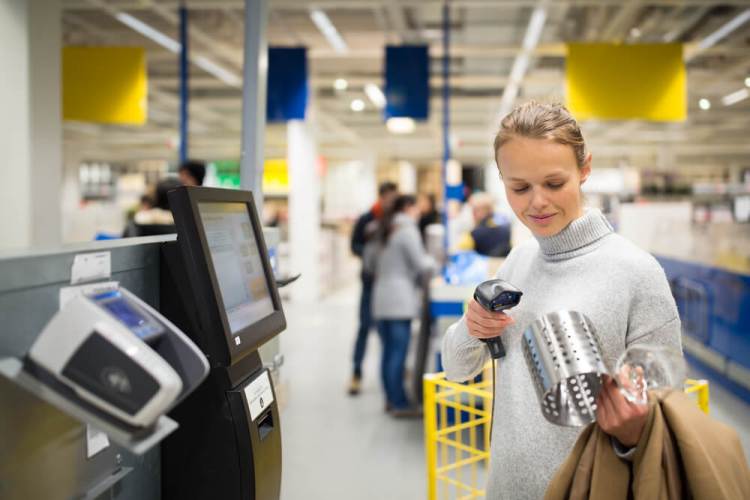When it comes to artificial intelligence (AI), both reporters and consumers tend to focus on big, bold, and very sexy stories, like autonomous self-driving cars or machines beating human world champions at games like chess, Go, and even Jeopardy. And I’ll admit, those stories are very cool, and they certainly deserve the attention they get.
Aside from those stories, though, some of the largest, most practical advancements in AI are happening in the industrial sector, and it might come to the surprise of more than a few that the retail industry — traditionally risk-averse and more fast follower than early adopter — is leading the way.
Deep learning-powered shopping
Currently, retail sees AI solutions like Amazon’s Echo, Google’s Home, and Apple’s Siri making real differences in the online shopping experience, and the Amazon Go concept store appears destined to be a disruptive force in the brick-and-mortar realm. Seemingly every week, new applications come online, like Original Stitch’s Bodygram, which custom-tailors button-down shirts from a single photo. But there are a lot more applications on the short-term horizon, especially those that will appear “behind the scenes,” and they will have a tremendous impact in all areas of the retail enterprise.
Behind these new AI-infused retail experiences lies deep learning, an AI approach utilizing neural networks which nearly everyone uses, including, likely, you via applications like Google Translate and Snapchat. The technology underpins health care diagnoses, self-driving cars, and even the financial markets where your 401(k) and other retirement savings are nestled.
June 5th: The AI Audit in NYC
Join us next week in NYC to engage with top executive leaders, delving into strategies for auditing AI models to ensure fairness, optimal performance, and ethical compliance across diverse organizations. Secure your attendance for this exclusive invite-only event.
And deep learning is more than ready for prime time — two years ago, a Microsoft algorithm won the ImageNet challenge by classifying a wide variety of objects, like birds, ships, cats, etc., into the correct categories more accurately than humans did.
The AI store of the future
So, where are you going to see deep learning and AI pop up in your retail environment? Well, the benefits are going to pop up everywhere. The challenge for shoppers will be recognizing when and how new shopping experiences have been shaped by data crunching and AI.
First off, the retail industry is already realizing tremendous increases in accuracy in shopper demographic data, as computers are rapidly becoming better trained on what different ages look like in diverse regions around the globe. Accurate demographic data allows a retailer to understand exactly the type of shoppers who are engaging with its brand, and those insights allow for more tailored decisions on everything from merchandise assortment and marketing campaigns, to store design and buildout, to customer loyalty programs.
Retailers are also experimenting with activity detection, understanding exactly what activities are being undertaken inside the store, by whom, and how they’re being undertaken. It’s not just about understanding the differences between the actions of shoppers and employees, but also what those actions are: a shopper picking up and examining an item but then putting it back without making a purchase; an employee restocking shelves or assisting a customer; etc. Over time and at scale, even relatively simple data streams — like whether shoppers try on shoes in self-service departments — deliver tangible insights, leading to strategies that deliver differentiated shopping experiences, and that’s important to all shoppers.
Other AI use cases in retail include better predictive and prescriptive models — essentially answering forward-facing questions like what will happen in a particular store tomorrow or this weekend — and automatic recommendations — along the lines of where new stores should be opened, what the layouts should entail, and what products should be stocked in the store and where. Shoppers’ needs and values will be better met when retail marries art and science.
Deep learning and artificial intelligence is rapidly moving from the domain of science fiction into our everyday lives, and it has exciting ramifications for the manner in which humans do nearly everything, from work to play. Savvy, winning retailers recognize that the technology is much more of a today thing than a tomorrow thing.
Arun Nair is the CTO and cofounder of RetailNext, where he and his team strive to continually advance retail IoT smart store analytics and help retailers reinvent the shopping experience.


